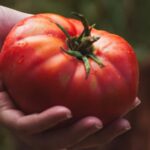NAFTA negotiating objective could hurt fruit & veg market, says FPAA

The Fresh Produce Association of the Americas (FPAA) has cried foul over the inclusion of a potentially protectionist provision in an official summary of North America Free Trade Agreement (NAFTA) negotiation objectives.
The objective in question is on page 14 of the United States Trade Representative (USTR) document:
"Seek a separate domestic industry provision for perishable and seasonal products in AD/CVD proceedings," it states, in reference to antidumping duties (AD) and countervailing duties (CVD).
The Nogales, Arizona-based organization claims the objective represents an "anti-market approach" that would lead to higher fruit and vegetable prices in the U.S., ultimately hitting Americans "in the pocketbooks when they can least afford it".
"A small group of politically connected, wealthy agribusiness firms from Florida are seeking concessions from the Federal government to effectively subsidize their industry by raising prices, an act that would deprive Americans of affordable fruits and vegetables," the FPAA says.
"As a part of the NAFTA renegotiation, they want to change antidumping law to manipulate the free market in order to benefit regional, seasonal perishable agriculture industries.
"If successful, this tactic will result in lawsuits that would raise prices for U.S. consumers, while reducing availability, selection and quality in the supermarket aisle for items such as tomatoes, avocados, bell peppers, watermelons, strawberries and blueberries, just to name a few."
Impacts on the hip pocket, U.S. exporters
The FPAA adds that pursuing “trade protection through increased litigation” will also be at the cost of U.S. exporters when similar “seasonal suits” are brought by Canada and Mexico. For example, retaliatory action could be taken from Mexico against U.S. apples, as the industry's top export destination with annual returns of more than US$250 million.
The association also points to AC Nielsen/Perishables Group research that shows if Mexican tomato supplies are cut in half in the December through May winter window, it will result in the consumer price per pound rising from an average US$2.16 to US$3.31.
Dr. Tim Richards, Morrison Chair professor of Agribusiness at Arizona State University, considered the market effects if Mexican tomatoes were excluded altogether for the period.
"We found that if Mexican imports are excluded from the U.S. market, retail prices during the December-May timeframe can be expected to rise by 97.9 percent for hothouse round, 96.9 percent for hothouse vine, 61.3 percent for snacking, 217.2 percent for Roma, and 52.1 percent for field tomatoes," Richards said.
The FPAA has also written a letter to House Committee on Agriculture Chairman Michael Conaway rebutting several claims from Reginald Brown of the Florida Tomato Exchange.
"Written and oral testimony rely on the overarching – and erroneous –assumption that the fresh fruit and vegetable industry in the United States, Mexico and worldwide has remained static and without innovation since the time NAFTA has been in effect," FPAA president Lance Jungmeyer says in the letter.
Jungmeyer criticizes Brown's claim that Florida tomato growers have lost market share due to "Mexico's known unfair advantages".
"With the exception of Florida and, in particular Florida tomatoes, Mexico and the rest of the world have transformed the fresh fruit and vegetable industry," Jungmeyer explains.
"In response to consumer demands, innovations in production practices are commonplace in Mexico, such as protected agriculture, efficient irrigation techniques, new product packaging and new and improved varieties of products [that] have transformed the marketplace.
"Produce items that were not even thought of at the time NAFTA was negotiated include grape tomatoes and long shelf-life tomatoes, along with specialty retail packs of vine ripe tomatoes, such as tomatoes on the vine. Now virtually every supermarket stocks such items."
Jungmeyer says these products are available year-round at a reasonable price for consumers, yet Florida has "not kept pace" with these innovations.
"Using tomatoes as an example, Florida largely produces the same fertilizer and pesticide reliant gassed mature green tomato which has been the model in Florida for generations," he says.
"When given the choice, consumers have demanded fresher varieties of vine-ripened tomatoes, roma tomatoes, grape tomatoes and cocktail tomatoes. The rest of the United States and the world have met the demand."
Jungmeyer also argues Brown's written and oral testimony "falsely imply" such innovations would not exist without government help.
"Government assistance is only a small part of the overall contributions to such innovations. Enormous private investment - some from the United States - has made such innovation possible," Jungmeyer emphasizes.
"In live testimony before the Committee, Mr. Brown was forced to admit that several U.S. producers in California and Florida are also investing in growing operations in Mexico.
"These investments are allowing those United States producers to extend and grow their own markets by taking advantage of Mexico's varied growing climates and complimentary [sic] production seasons."
The FPAA has also drawn attention to the report "NAFTA Mischief in Fruits and Vegetables" from free-market think tank the Peterson Institute for International Economics (PIIE), which also claims U.S. and Canadian exporters could be victims of protectionist retaliation from Mexico if the provision is applied.
"Of course, other farmers will gain when trade barriers enable them to charge higher prices. But the real winners will be trade lawyers who will earn handsome fees by bringing fast-action cases," the report states.
Photo: www.shutterstock.com







































